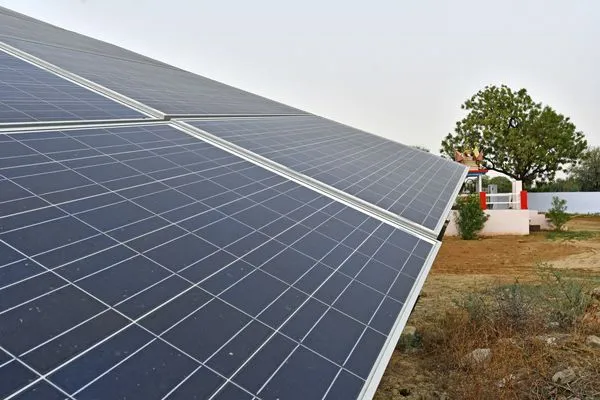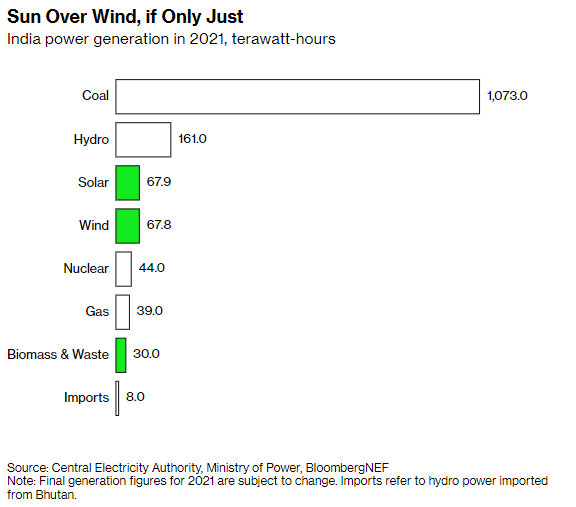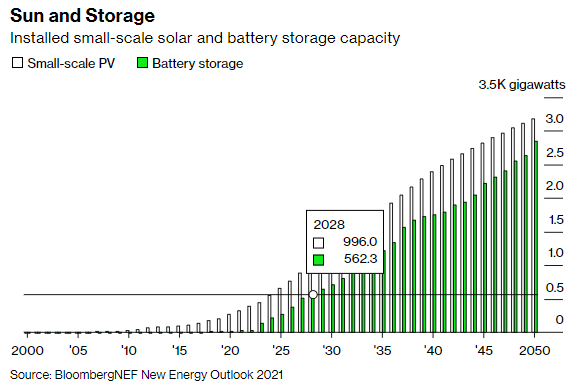The Future of Power and Transport Markets Is Decentralization
- Numerous solar generation systems and battery systems will certainly be individually possessed

Over the vacation I spent as much time outside as possible, and as little time in front of displays as I could. As I launch 2022 display time, there are a couple of statements of note worldwide of transport and also electrical power that get me thinking about the year (and also years) in advance. They vary large, however point to two things: a huge scaling up of clean electrical power and electrified transport, as well as a simultaneous decentralization of both at the same time. The effects of the latter are fascinating, but first, the scaling.
In India, solar generation directly went beyond wind generation in 2021, making it the third-biggest resource of electrons behind coal and hydro. Wind, solar, and also biomass are now greater than 10% of India's power generation; throw in hydro as well as nuclear and 25% of its power is zero-carbon. Coal still dominates-- it was 72% of all generation as well as at a record high level last year-- however it's expected to hardly expand to 2030, while solar will certainly triple.

India's solar growth will certainly proceed, and so will certainly the world's. Much of that will be highly dispersed, at the scale of a family, and much of it will certainly be paired with a battery. BNEF anticipates small scale solar generation capability to broaden practically ten-fold by 2050. Battery capacity will broaden almost 130 times by mid-century.

Batteries, certainly, will not simply be stationary as well as made use of for power grid applications. In the U.S., Ford has revealed the second increasing of manufacturing capability for its F-150 Lightning electrical pickup in less than twelve months, from 40,000 to 80,000 as well as now 150,000 devices a year. A Ford executive claimed that "it feels like the need is definitely there" for EVs to be 10% of the U.S. car market, which would certainly align this delayed market with the international market, which hit that mark in the 3rd quarter of 2021.
Significant producers are preparing to use their vehicles as storage space options that can not just hold and use a cost, yet release it to something else. Volkswagen, which is in the middle of its very own considerable electrical vehicle development, said last month that its EVs will certainly be part of a "universal as well as smooth eco-system for charging." VW sees bi-directional charging as a method for its vehicles to "be used on the power market as adaptable, mobile power storage devices."
These advancements indicate a decentralization of considerable parts of the power as well as transport systems. Millions of solar generation systems and also battery systems will be independently owned, joining power markets that just a couple of years ago were the unique province of huge energies and state-owned as well as state-regulated firms. Cars have actually been individually possessed since the start certainly, but if thousands of numerous them end up being participants in the power market in the coming years, they will certainly play a really different duty than they do today.
Decentralization of energy systems can enable myriad new company designs to grow. People can arbitrage rate differentials; neighbors can patronize each other; business can aggregate properties and act in place of larger as well as established power market participants. These are good possibilities that should be embraced-- but they additionally question.
Power markets are not the customer web. Power markets are extremely managed for a factor, and we jointly place assumptions on those markets-- of integrity, of universal solution, and also of cost-- that we do not typically put on private actions. In a decentralized age, would an individual participant be able to price her own power at 10,000 times the average? Or, would certainly a tiny clique of experts take part in 'clean trading' as well as essentially spoof the marketplace with cost signals that do not mirror supply and also need?
Another just as crucial question is, does decentralization necessarily imply much more innovation? Aaron Levie, the chief executive officer of cloud companies Box, perfectly captured the tradeoffs between decentralization and advancement in a series of tweets at the end of December. Levie is composing specifically about software program and also the potential to build decentralized apps that work on the blockchain, called Web3, yet his insights are relevant right here, also.
The internet, Levie says, "is already decentralized, allowing you to introduce any type of brand-new product to the marketplace at any moment." A more decentralization-- in which each item itself is without a center-- damages a market's natural efficiency at figuring out the ideal item that it requires. Include needs for accessibility as well as integrity, as well as it is unclear the level to which decentralized electrical power and electrical transport markets might operate without some centralized control.
The future likely will supply a blend: a decentralization of properties together with entities that will offer 'command and also control' functions. That might leave lots of area for development, and plenty of room for brand-new businesses and also organization models to emerge. More on that particular following week.
Also read

